Forgiveness and Forgiving
Medical research and studies show how forgiveness can transform neural circuits in the brain for positive change. When I read books from Dr. Andrew Weil, Dr. Jon Kabat-zin, and Dr. Joan Borysenko, the insights on mind-body healing and psychoneuroimmunology (PNI) drew me in. They explain how mindful awareness, compassion, and forgiveness can help me tap into my natural built-in healing powers. The mindfulness meditations show the potential of forgiveness to connect with my inner joy. The religious teachings guide us to forgive. Science and spirituality appear to converge on the ideas of forgiveness and forgiving. I am sharing in this article my learnings, thoughts, and food for thought about forgiveness.

Why bother?
I used to think I hurt no one, so why the concern about forgiving? I’d rather live a carefree life instead of carrying the heaviness of the idea.
I learned that the weather of thoughts and emotions passing through me could possess me: my actions and behavior can impact others without realizing it. Hurt from others could be churning in the subconscious, and I may not even be aware. The weather has accumulated from my current and past lives.
I could be hurting other living beings (plants, animals, microbes, or any other organism) simply from my way of life without awareness.
While entering the temple at Shrimad Rajchandraji’s ashram in Agas, I read the following words: it resonates with me even now.
Forgiveness is the grand entryway to self-realization.
ક્ષમા એજ મોક્ષનો ભવ્ય દરવાજો છે.
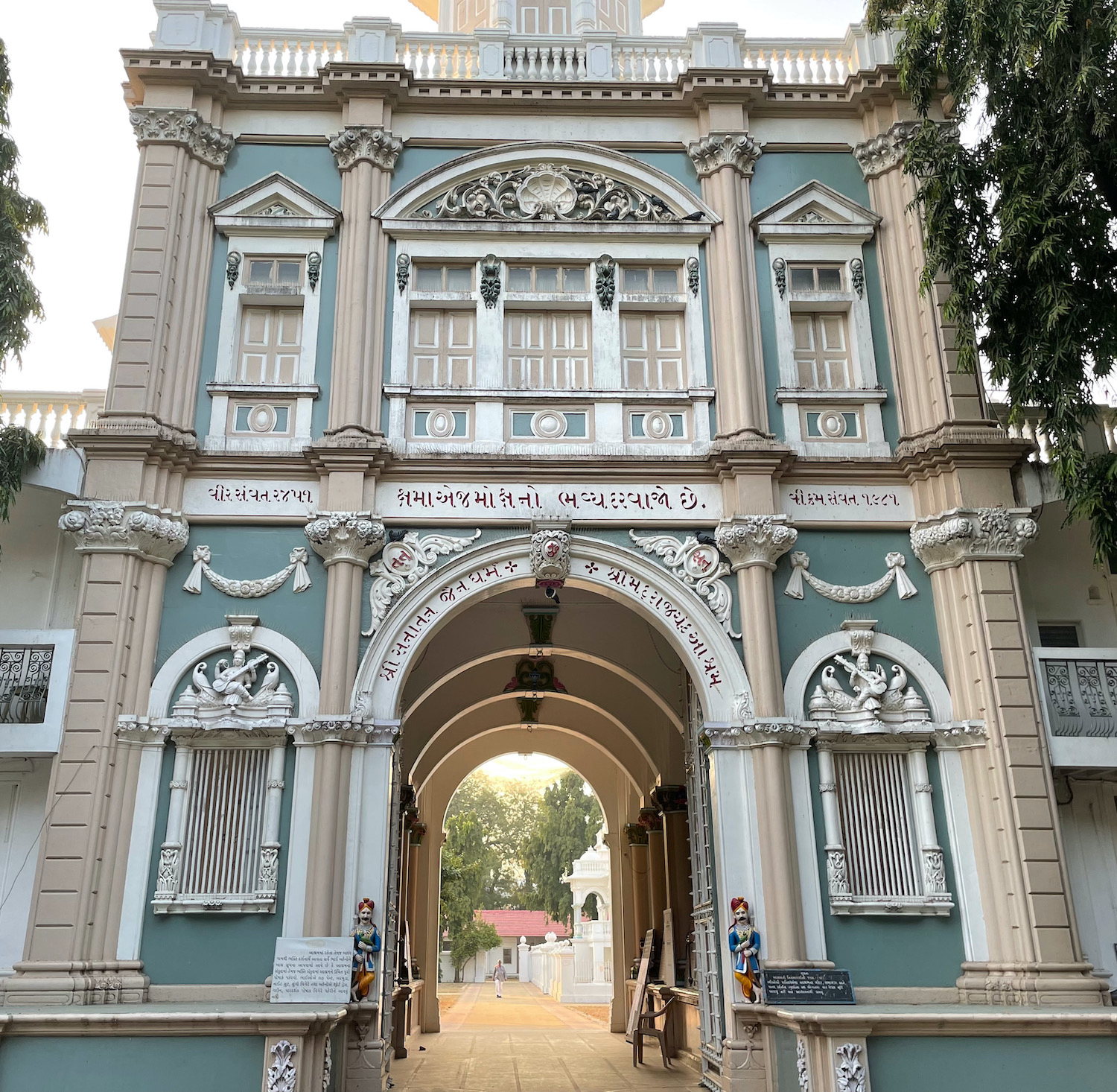
Forgiveness and Health
What happens because of potential negativity or anger in my subconscious?
A constant stream of thoughts emerges and flows through our minds like a waterfall. On average, there are 60,000 thoughts per day, and 95% of them are the same as yesterday. Thinking patterns can feed on themselves, causing us to harbor and even build negativity and anger. Rumination can activate the stress response in the brain: the cortisol level increases and the fight-or-flight response can increase blood pressure. It can impact sleep quality.
It is easy to overcome at a young age. I may not even realize it’s there. It still drains the energy I could use to grow, develop, and connect with others. As we age, it can catch up to us with health issues. What might appear as a severe or acute symptom might be a culmination or build-up of psychosomatic effects over the years. In extreme cases, repetitive thoughts getting too invasive can cause anger disorders, obsessive-compulsive disorder (OCD), post-traumatic stress disorder (PTSD), and depression.
How does forgiveness help me heal, grow, and be happier?
Forgiveness softens or dilutes the toxic effects of rumination. It affects the parasympathetic nervous system, which slows breathing and heart rate and increases digestion. It’s also known” as the rest-and-digest response, which can neutralize the effect of the fight-or-flight response. With toxic anger out of the system, muscles relax, anxiety decreases, energy levels increase, and the immune system strengthens. The act of forgiveness lowers blood pressure and improves sleep.
Acknowledging and seeing all living beings with compassion helps me tune in with nature and be in harmony with the universe. It allows or unblocks my inner healing energies.
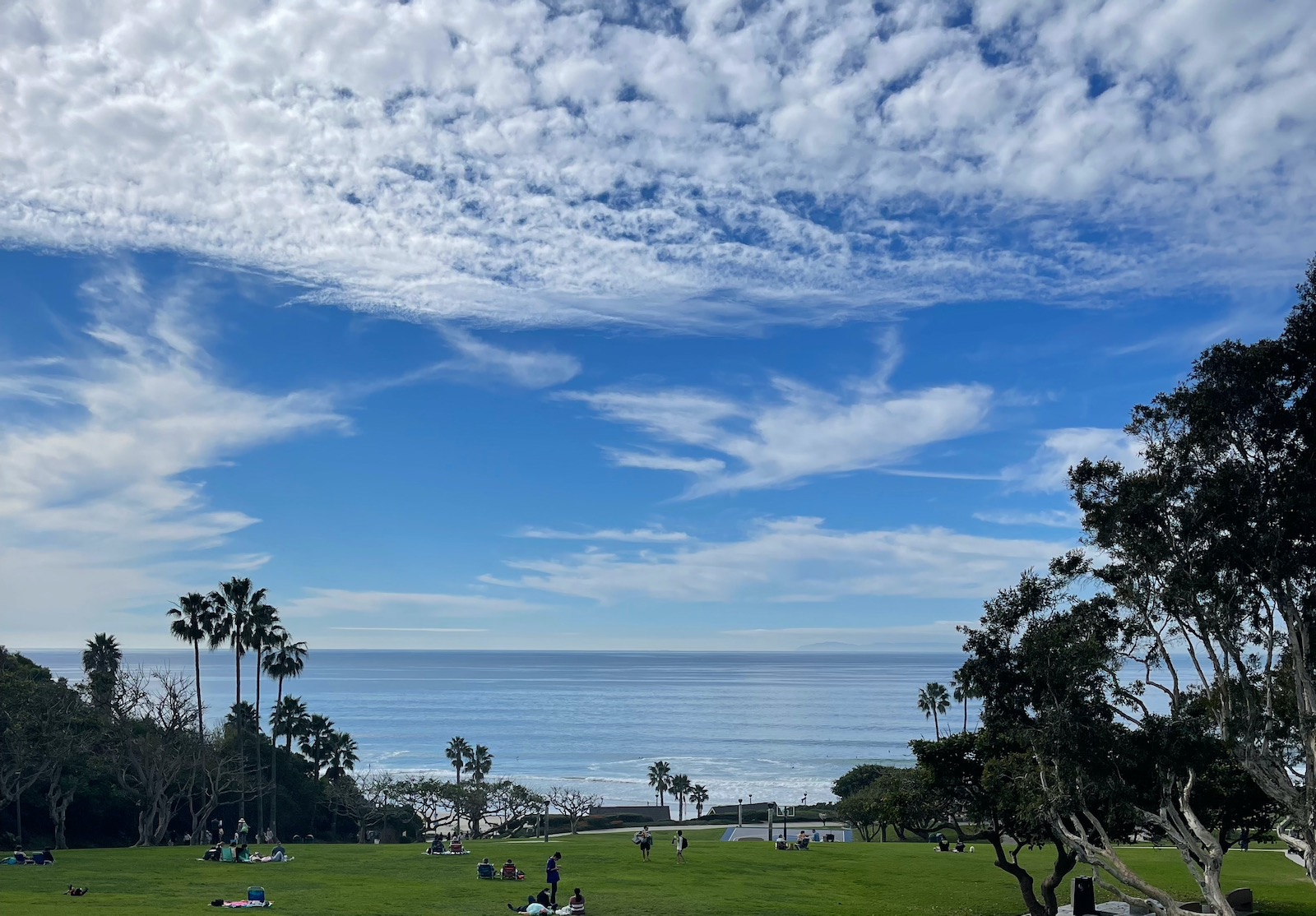
Paradigm of Forgiveness
When I choose to forgive, it empowers me to control and create my life narrative instead of feeling victimized by actions from others. It frees me from the jail of past experiences. It releases my heart from pain, hurt, and anger.
When I forgive, I value my priceless inner core. I am not wasting it away with negative emotions. It can give me the strength to grow from challenges and use them to assist others.
Forgiveness isn’t just about letting go and moving on. It also offers empathy, compassion, and understanding toward someone who might have hurt me. It can be a powerful construct for positive change.
Authentic forgiveness stems from a deep faith that we are enough and that love is abundant. I have so much richness from inside that if someone takes a little out of it, I don’t have to chase them to return the debt. Forgiveness is about living in a place of abundance and not scarcity.
Lewis B. Smedes: To forgive is to free a prisoner and discover that the prisoner was you.
Suzanne Somers: Forgiveness is a gift you give yourself.
Wayne Dyer: Forgiveness is an act of filling yourself with love and radiating that love outside to impart in others.
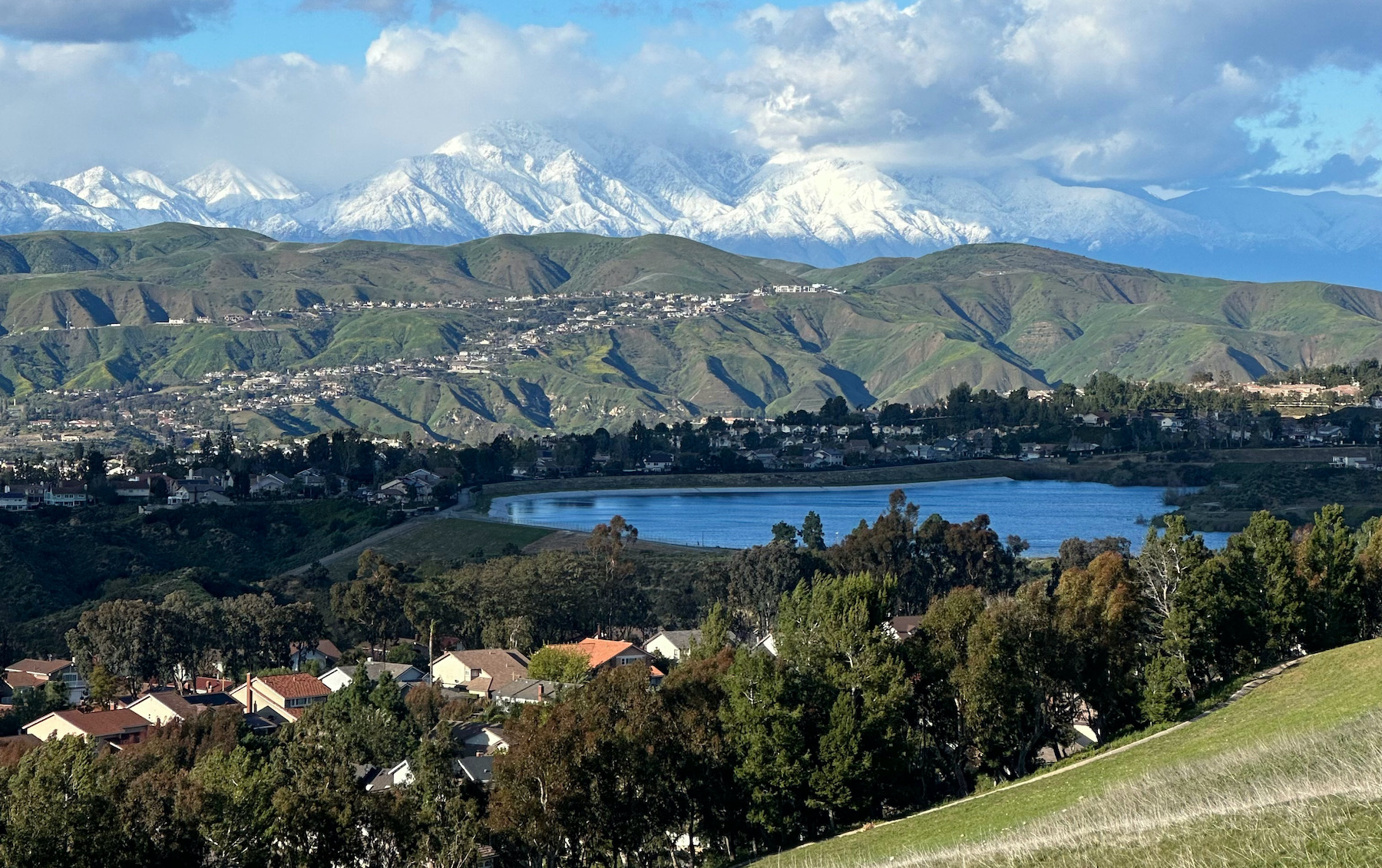
Do I have the ability to forgive?
The answer is yes: the neural circuits and other structures in the prefrontal cortex in our brain—the compassion circuitry—allow us to perceive emotions, empathize, and respond to others with compassion. I have a built-in support system available to use.
I learned from mind-body healing work that there is only one emotion: fear – behind my anxieties, anger, worries, stress, frustration, or hurt. My ego is trying to protect me from the perceived or imagined fear that took root from past experiences. If I want to forgive genuinely, I need to bring my concerns out in the light of my awareness, be vulnerable to allow them, and let them go; that requires courage. It’s much easier to bury the fear in my inner dungeons and not think about it. Bringing it out is painful.
Mahatma Gandhiji: The weak can never forgive. Forgiveness is the attribute of the strong.
My actions, thoughts, and emotions from the past create a strong energy field that can control or impact my thinking. The energy field is – karma. I might be accumulating it not only from my current life form but also from past births. My inner weather and body chakras are under the influence of karma: when I think about it, my free will could be limited by it. What has accumulated over years, decades, or even centuries can’t go away in a snap. So, as much as I consciously think of forgiving, turning the massive tide inside takes effort.
I can’t will forgiveness in an instant. However, I can be willing to forgive. It is about my intent to forgive: staying with it can gradually open the door and start the process that can bring positive change.
Tyler Perry: It’s not an easy journey to get to a place where you forgive people. But it is such a powerful place because it frees you.

HELPFUL TOOLS – ONE: Forgive Myself
My journey with forgiveness starts with me. Can I forgive myself first?
- If I have experiences and memories where I wish I had done something differently or am being hard on myself, can I let go of the self-judgment?
- A child is inside me: can I hold my inner child with unconditional love and kindness?
- I could be repeating mistakes, running into certain scenarios, or having thinking patterns based on my karma – the energy field I built over life cycles. The weather is passing through me. If I resist it, fight with it, or feel guilty about it, my reaction will make it even stronger: allow it – accept it – let it go. It can help me heal.
When I love, nurture, nourish, care for, and accept myself, the circles of compassion start in the inner healing space and ripple outwards to touch others. It can help me cultivate space to hold and nurture the vibes of forgiveness.
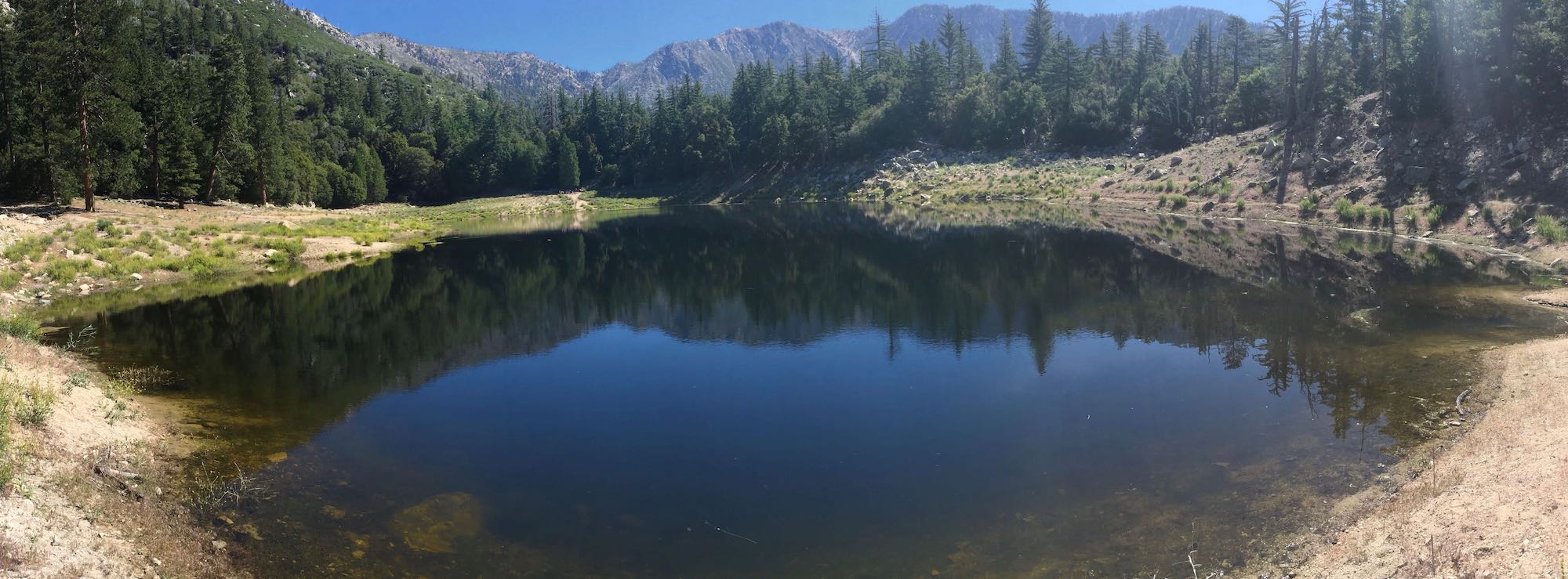
HELPFUL TOOLS – TWO: Create my Narrative.
When I recognize what my inner weather brings, can I use my built-in inner compass – my conscience – to create a positive narrative? It can help me connect with my inner abundance.
I am the Atma – universal consciousness full of peace, bliss, happiness, love, boundless creativity, and abundance. Can I use it to hold my thoughts, feelings, memories, and body sensations with compassion and love? It can open space for me to explore and lead a meaningful change.
Can I take a few moments every day to be grateful for the blessings and positives in life?
A positive dialog with myself can be a catalyst to germinate the seeds of forgiveness.
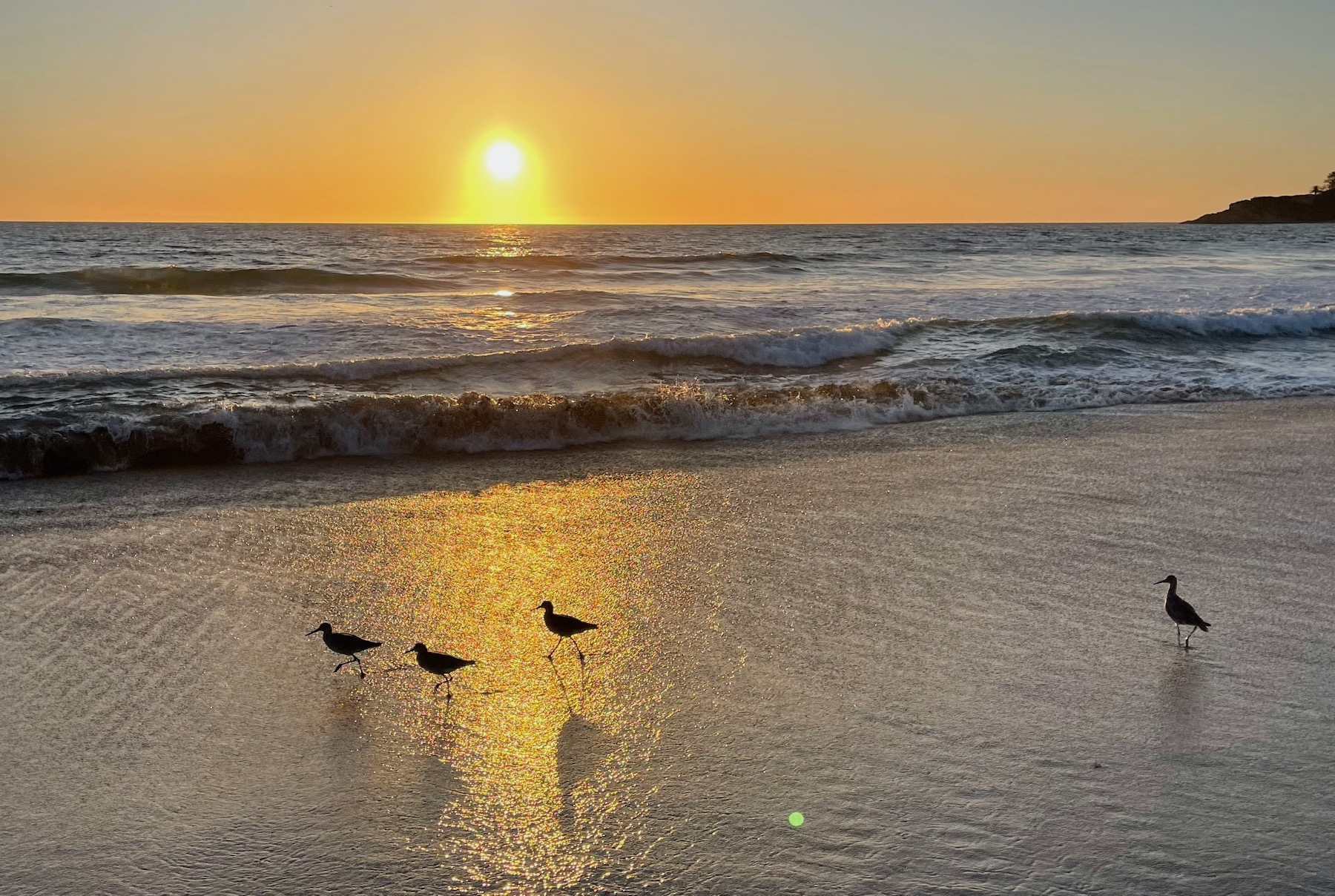
HELPFUL TOOLS – THREE: Start with Giving
Forgiveness is an extreme type of kindness that lasts forever. Forgiving can start with giving unconditionally, even if a tiny bit.
Examples:
- Smile and see the good in others in a trying moment. That is – even more so if there was a build-up in the relationship from past encounters.
- Listen to others with patience. Take time to understand.
- Take care of small details with friends and family.
- Acknowledge positive steps and actions from others.
- Give a gentle, encouraging note to someone putting their heart into an initiative.
- Join a voluntary activity. Help someone in need.
When I give, my fulcrum shifts by that much from scarcity towards abundance. It can help me shore up my support system from the inside to strengthen my intent to forgive.
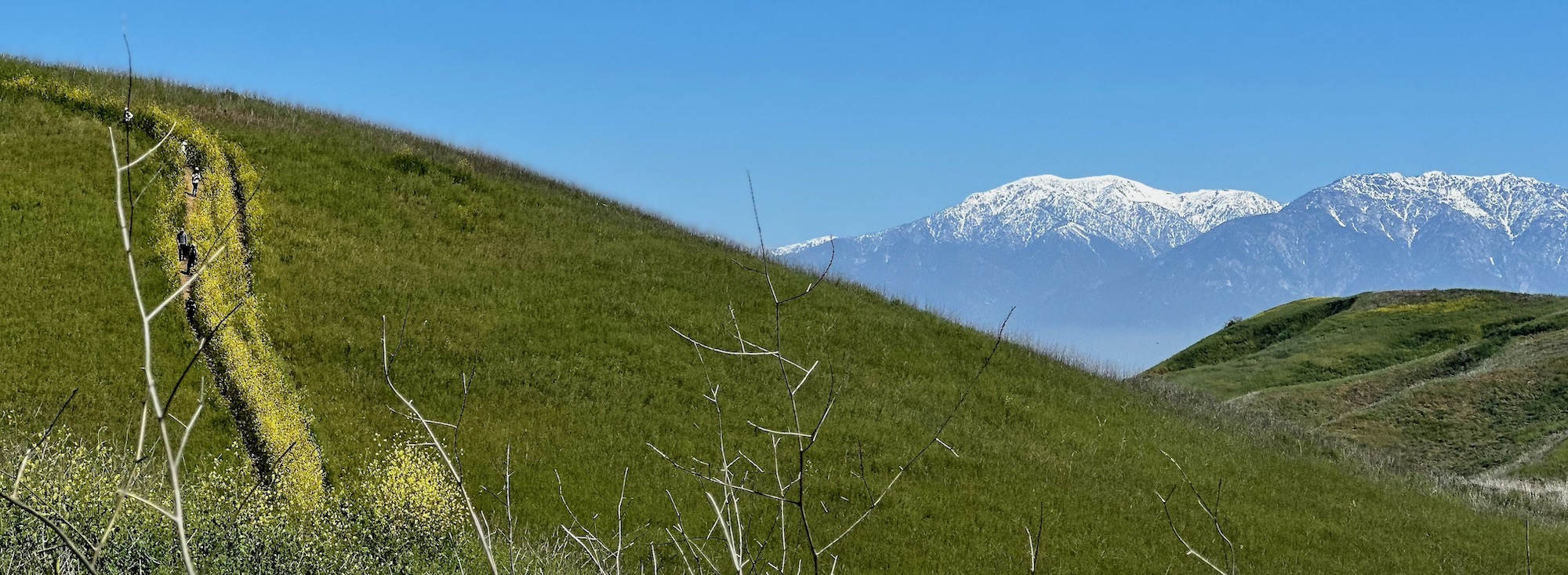
HELPFUL TOOLS – FOUR: Mindfulness and Self-awareness
Can I put myself in the position of a witness to my thoughts, feelings, and body sensations? I am the one who observes it all (સાક્ષી ભાવ). It naturally allows me to detach from the drama of my mind and softens the grip of emotions. The detachment also connects me with my inner joy, peace, and bliss.
Mindfulness and self-awareness help me with the direction along the journey of forgiveness.

HELPFUL TOOLS – FIVE: Beginner’s Mindset
Can I be a beginner for a change? Have childlike curiosity and openness to see new possibilities with each moment rather than presuming it is a continuation of the same. It can bring new energies and freshness to my outlook. It may help me see magic in the mundane and routine.
I want to see others with their unique, miracle nature, and not through my lenses of ideas and opinions about them. I avoid insisting they should be how they were half an hour ago, yesterday, a couple of years ago, or any other time. I hope it gives them space to open up.
Seeing everything and everyone with a child’s freshness, lightness, and openness can open up the space to dissolve grudges and nurture the seeds of forgiveness.

HELPFUL TOOLS – SIX: Self-control
I have been doing 8-day fasting – Aththai – for several years. It started as a test of willpower – I wanted to prove I could do it. It sustained subsequent years for the reward of the magical energy release I experienced after the fasting.
After a few years, it started connecting me with inner peace. My mindset shifted to tune into the internal flow and grace. I no longer have the body cramps or back pain I used to get during fasting. The body scan meditation I have been doing for years is more effective during the days of fasting. I can think more clearly: my focus is much sharper. My inner joy and intuition seem to emerge naturally. In that space, my direction shifts to what carries a deeper meaning for me. I am more equipped to face my fears and let them go. I can open up and connect with others more easily.
I wish it carried with me through the year, but it isn’t the same as I get wrapped in the fast pace and the daily grind. I am happy I can “go there” once a year.
The story’s moral is that self-control has tremendous potential to shape my life. It opens up the space to heal, grow, develop, and lighten up when I can detach from my bodily desires. It connects me with my inner compass, guiding me to align with universal values and principles: forgiveness is one of them.
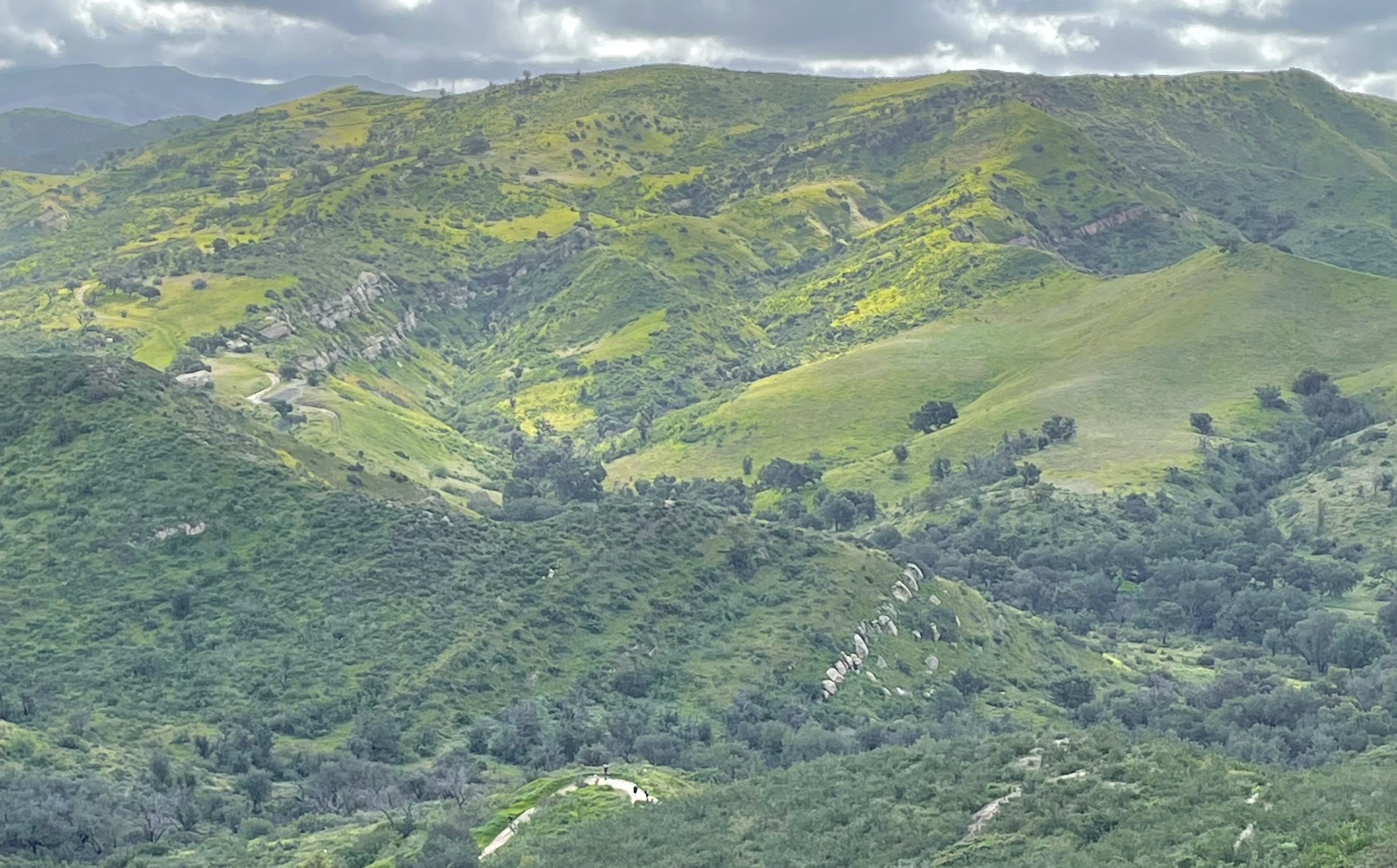
HELPFUL TOOLS – SEVEN: Ho’oponopono
I learned that Ho’oponopono is a Hawaiian ritual to cultivate compassion, forgiveness, and gratitude. Our subconscious has countless memories and programs recorded in it. There are zillion quantum particles – each drawing in vibes of energy, ripples of emotions, and waves of interactivity with a range of people & situations. My conscious mind is aware of only a tiny portion of those. Without realizing it, each activates a memory stored in our subconscious mind, manifesting as a problem or a repetitive pattern. The Ho’oponopono is about taking 100% responsibility for all that manifests in our lives and surrendering to the universal consciousness to heal it. It is about repeating four sentences: I am sorry – please forgive me – thank you – love you.
I am sorry, as I am 100% responsible for what is expressed in my life. It might happen from memory or a quantum particle in the subconscious from this or previous birth cycles. I take responsibility for it all.
Please forgive me – I am asking the divineness inside me and the entire universe for forgiveness. I surrender my ego and release myself.
Thank you for all that is happening in my life – including the problems – it is allowing me to clean it. I am grateful for that.
I love you – there is the same universal consciousness inside me- the space filled with peace, bliss, happiness, and compassion. I am one with and love all in that space.
The Ho’oponopono repetitions help me clean up my memories and loosen the grip of the energy field I have been carrying and building over birth cycles. It helps me release and forgive.
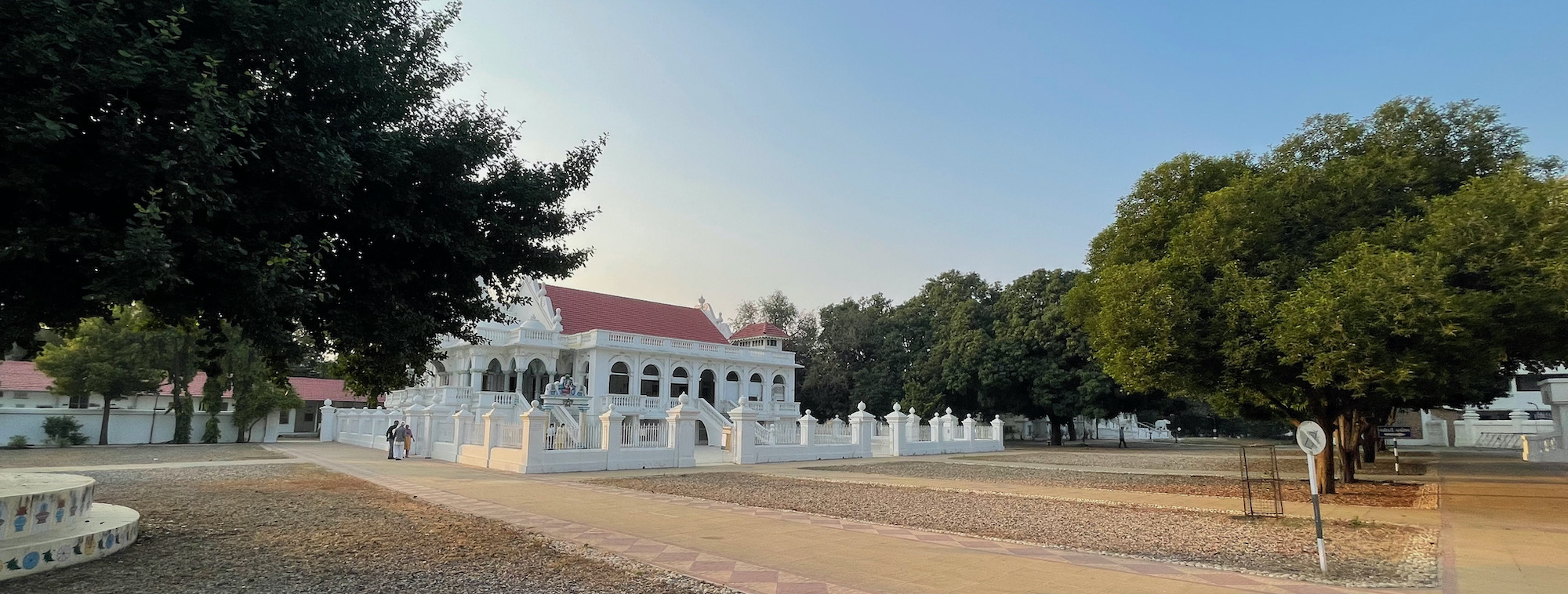
My Intent to Forgive
I say the following with my intent to forgive. I pray it blesses me with grace to let go and merge with all – be one with all.
Michchhami Dukkadam: I beg for forgiveness for all hurt caused by me knowingly or unknowingly. 😊 🙏🏼
મિચ્છામિ દુક્કડમ: જાણ્યે અજાણ્યે જો મારાથી કોઈ ભૂલ થઈ ગઈ હોય તો હું તમારી માફી માંગું છું. 😊 🙏🏼
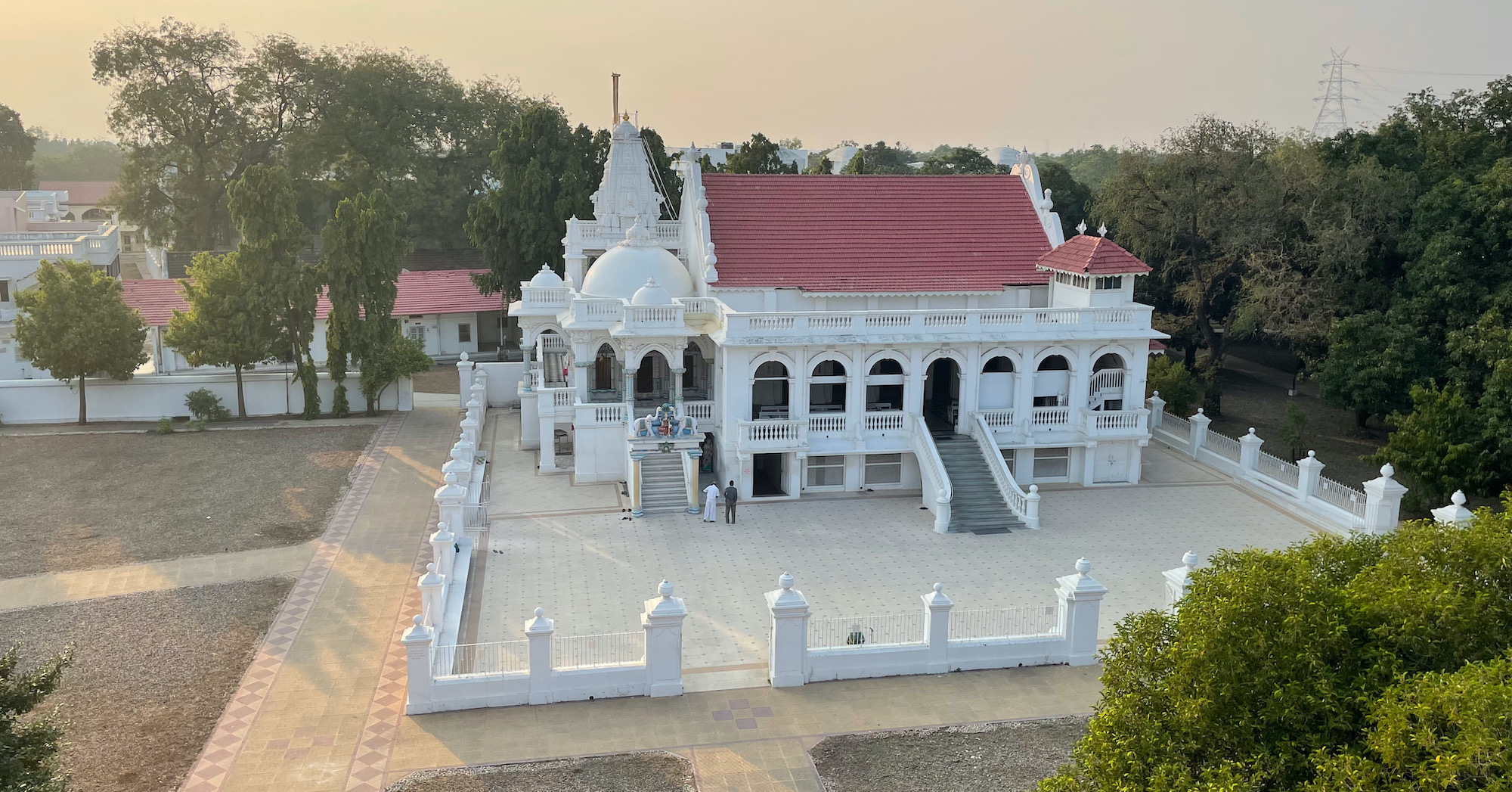
2 Responses
Hasuben Shah
Dear Deven,
I enjoyed reading your blog. The write-up and pictures are so good. Yes, forgiveness always has a positive impact on health. Religion teaches us to forgive. Forgiveness gives peace to our lives. Removing negative feelings always lightens us up.
Indeed forgiveness is a gift we give ourselves, indicating a person’s strength. Forgiveness, calmness, patience, cleanliness, seeing good in others, knowledge, inner light, and strong character are virtues of the atma. Accept the change, and see it from a fresh perspective. Fasting helps with strength and inner happiness: it helps us detach from physical needs. Self-control plays such a significant role in cultivating a good life outlook.
Forgiveness is the best virtue of all.
Mummy
Richa Mehta
What a beautiful post Deven bhai!! Enjoyed reading it.
Well describe on how forgiveness impacts to someone, their own health. Loved all the tools that you mentioned. Didn’t know about Hawaiian ritual. It seems to be really powerful if we practice it regularly.
Keep writing ! Keep inspiring !!